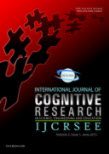THE PREREQUISITES OF PROSOCIAL BEHAVIOR IN HUMAN ONTOGENY
THE PREREQUISITES OF PROSOCIAL BEHAVIOR IN HUMAN ONTOGENY
Author(s): Irina M. Sozinova, Alexey A. Sozinov, Seppo J. Laukka, Yuri I. AlexandrovSubject(s): Social psychology and group interaction
Published by: Удружење за развој науке, инжењерства и образовања
Keywords: prosocial behavior; in-group; out-group; 3–11-year-old children; moral dilemmas;
Summary/Abstract: Understanding the development of moral attitudes toward unrelated individuals from different social groups may provide insights into the role of biological and cultural factors in prosocial behavior. Children (3–11 years old, N=80) were presented with moral dilemmas describing a conflict of interests between a con-specific (human) and another species (animals or aliens). Participants were asked to evaluate the behavior of a human in terms of ‘good’ and ‘bad’, and to choose whom they would help: a human aggressor who benefits at the expense of a victim in vital need, or the victim. Results showed that the older children preferred to help non-human victims significantly more often than the younger children. The evaluation of human actions was related to the proportion of such preferences. These findings are discussed from the perspectives of kin selection theory, group selection theory and the system-evolutionary approach. The implications of the study for moral education are suggested.
Journal: International Journal of Cognitive Research in Science, Engineering and Education (IJCRSEE)
- Issue Year: 5/2017
- Issue No: 1
- Page Range: 57-63
- Page Count: 7
- Language: English

